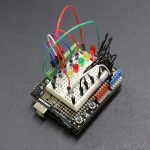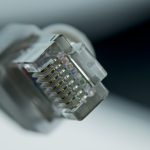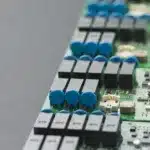
Introduction
The world of technology is constantly evolving – and with it – so are the methods and techniques used in various industries. In the realm of electrical engineering and automation, one area that has seen significant advancements is the driving of DC motors–essential components that drive countless devices and systems. Traditional methods of controlling DC motors have their limitations; however, the future of DC motor driving is undergoing a significant transformation–thanks to the integration of Smart IC (Integrated Circuit) technology. This article dives into the exciting possibilities and benefits that Smart IC technology brings to the world of DC motor control.
Understanding DC Motor Driving and Smart IC Technology
DC motor driving involves controlling the voltage and current supplied to the motor for optimised speed and direction. DC motor driving is essential in various applications, including robotics, industrial automation, electric vehicles, and consumer electronics, where precise control of motor speed and direction is necessary to perform specific tasks. Traditionally, these methods involve the use of analogue circuits, such as H-bridges and PWM (Pulse Width Modulation) controllers, that have served well for many years but come with certain limitations.
On the other hand, smart IC technology in the context of DC motor driving involves the integration of sophisticated microelectronics into DC motors to enhance their overall performance while making them more versatile and adaptable. These intelligent electronic components control and drive the operation of DC motors more efficiently and intelligently and perform a variety of functions, such as motor speed control, current sensing, fault protection, and communication with external devices.
Adapting Smart ICs-Based DC Motor Driving: Exploring the Limitations of Conventional DC Motor Control
Traditionally, DC motor control involved using discrete components like transistors, resistors, and capacitors to regulate the motor’s speed and direction. While this method has been effective, it often requires complex circuitry and needs more advanced features for modern applications. Some of the limitations include:
- Limited Efficiency: Analog control circuits often result in energy losses due to heat dissipation in transistors and resistors, reducing overall efficiency.
- Complex Wiring: Building and wiring analog circuits can be cumbersome and complicated, especially in applications requiring precise control of multiple motors.
- Lack of Intelligence: Conventional DC motors control methods lack the capability to adjust to changing conditions or communicate with other smart devices in the system.
The Rise of Smart IC Technology: Unlocking Its Potential Benefits
Smart IC technology aims to overcome the limitations of traditional control methods–representing a significant leap forward in the world of DC motor control. The following are critical aspects of smart IC technology in DC motor driving:
- Higher Efficiency – Smart ICs incorporate advanced power electronics, resulting in higher efficiency and reduced energy wastage.
- Integration – These chips integrate multiple functions into a single package, simplifying designs and reducing component count.
- Digital Communication – Smart ICs often come equipped with communication interfaces, such as I2C or SPI, enabling seamless integration with microcontrollers and other smart devices in the system.
- Adaptive Control – With built-in sensor interfaces and feedback loops, Smart ICs can adapt to changing conditions and provide precise motor control, making them ideal for multiple applications.
Applications of Smart IC Technology in DC Motor Control
The future of DC motor driving with Smart IC technology is promising and extends to various industries and applications, such as:
DC Motor in Robotics
Smart ICs are extensively used in robotics, providing precise control of DC motors in robot arms, joints, wheels, and other moving parts. They allow robots to navigate, manipulate objects, and perform complex tasks with robust accuracy.
Automotive
Electric vehicles and hybrid cars benefit from smart ICs for controlling traction motors, power steering systems, and other DC motor-driven components. It helps improve energy efficiency and performance while reducing emissions.
Industrial Automation
Smart ICs simplify motor control in conveyor belts, CNC machines, and other industrial equipment, enhancing productivity and energy efficiency and reducing downtime.
Home Automation
Smart ICs can seamlessly control home appliances, like washing machines, refrigerators, and vacuum cleaners, by controlling DC motors’ operations. They improve the performance and efficiency of smart appliances with quieter operations.
Consumer Electronics
Consumer electronics also benefit from smart ICs, ensuring precise control of the DC motors for focus, zoom, and rotation in camera lenses, optical drives, and CD/DVD players–enhancing the user experience.
Medical Devices
Smart ICs enable accurate and safer motor control in various medical devices and diagnostic equipment, contributing to patient well-being.
Aerospace and Aviation
DC motors are used in aircraft actuators, landing gear, and drones. Smart ICs provide reliable and precise control for critical functions, ensuring safety and performance.
Renewable Energy
Smart IC technology is also employed in DC motor control for renewable energy applications, maximising energy capture and minimising wear and tear on moving parts in tracking systems and wind turbines.
DC Motor Driving With Smart IC Technology: Future Trends and Developments
The future of DC motor driving with smart IC technology looks promising, holding exciting possibilities. Emerging trends include using AI (Artificial Intelligence), IoT connectivity, and machine learning algorithms for motor control, further enhancing motor performance and adaptability. Additionally, advancements in semiconductor technology will lead to smaller, more efficient smart ICs.
Final Thoughts
Smart IC technology is undoubtedly the future of DC motor driving–representing a paradigm shift in the field. The bespoke innovative technology offers improved efficiency, precision, and safety while enabling seamless integration into interconnected systems. As technology keeps advancing, smart ICs will likely become the standard in DC motors control, enabling smarter, more energy-efficient, and more connected systems, shaping a brighter future for DC motors technology.





















